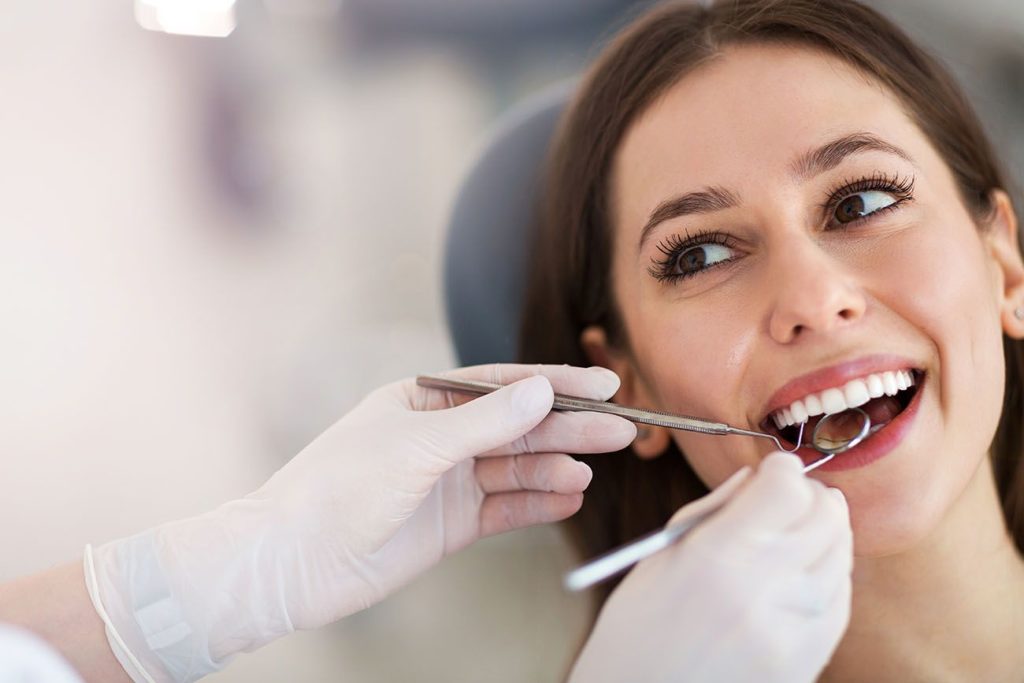As soon as we start growing baby teeth, we begin visiting the dentist for routine appointments. When we get older, we become busier, and it feels tempting to skip these dentist appointments. But we receive crucial preventative dental care during these check-ups, so you should schedule them as your dentist directs.
You may also wonder what happens during these visits that makes them so vital to your oral health. And when do you need to make these appointments? Read on to discover the importance of regular dental check-ups and how often you should attend them.

Why Do I Need Routine Dental Check-Ups?
During a routine dentist appointment, your dentist will both clean your teeth and perform an oral exam. A teeth cleaning involves the dentist scraping plaque and tartar build-up from your teeth.
Though you practice oral hygiene at home, there are spots on your teeth that a brush cannot reach. To ensure your smile stays healthy, you will need a dentist to perform this teeth cleaning.
Your dentist will also check your teeth and gums for signs of decay, gum disease, and other dental concerns. They will offer swift treatment for these issues before they can worsen and leave lasting damage to your smile. This type of preventative dental care helps you avoid painful or costly dental emergencies.
How Often Should I Schedule Dentist Appointments?
The average dental patient should attend regular dental appointments every six months. This establishes the ideal window for dentists to examine and clean your smile before plaque and other dental dangers can majorly impact your oral health.
Some patients might need to attend more frequent dental check-ups. For instance, senior patients, those with a higher propensity for tartar formation, and people with underlying medical conditions may need to see their dentists three or four times each year.
Consult with your dentist to form an effective preventative dental care plan for your unique smile. Call the dentist’s office to schedule an appointment.
What Do I Do During a Dental Emergency?
Despite diligent preventative dental care and efforts, you might suffer an accidental dental problem. If you notice a change in your smile or feel pain in your mouth, do not wait until your next scheduled dentist appointment. Contact your dentist as soon as you can about these symptoms.
If you delay evaluation and treatment of a dental problem, you could risk the issue worsening, leading to irreversible dental damage. For instance, bleeding gums might seem like a minor concern. But if this symptom stems from gum disease, the infection may spread and lead to tooth loss.
Your dentist can arrange for you to attend an emergency dentist appointment if you require urgent care for your smile. Whether you feel tooth sensitivity or suffer a blow to the face, you should let your dentist know about these concerns. The dentist can also offer advice over the phone to alleviate your discomfort before your appointment.
